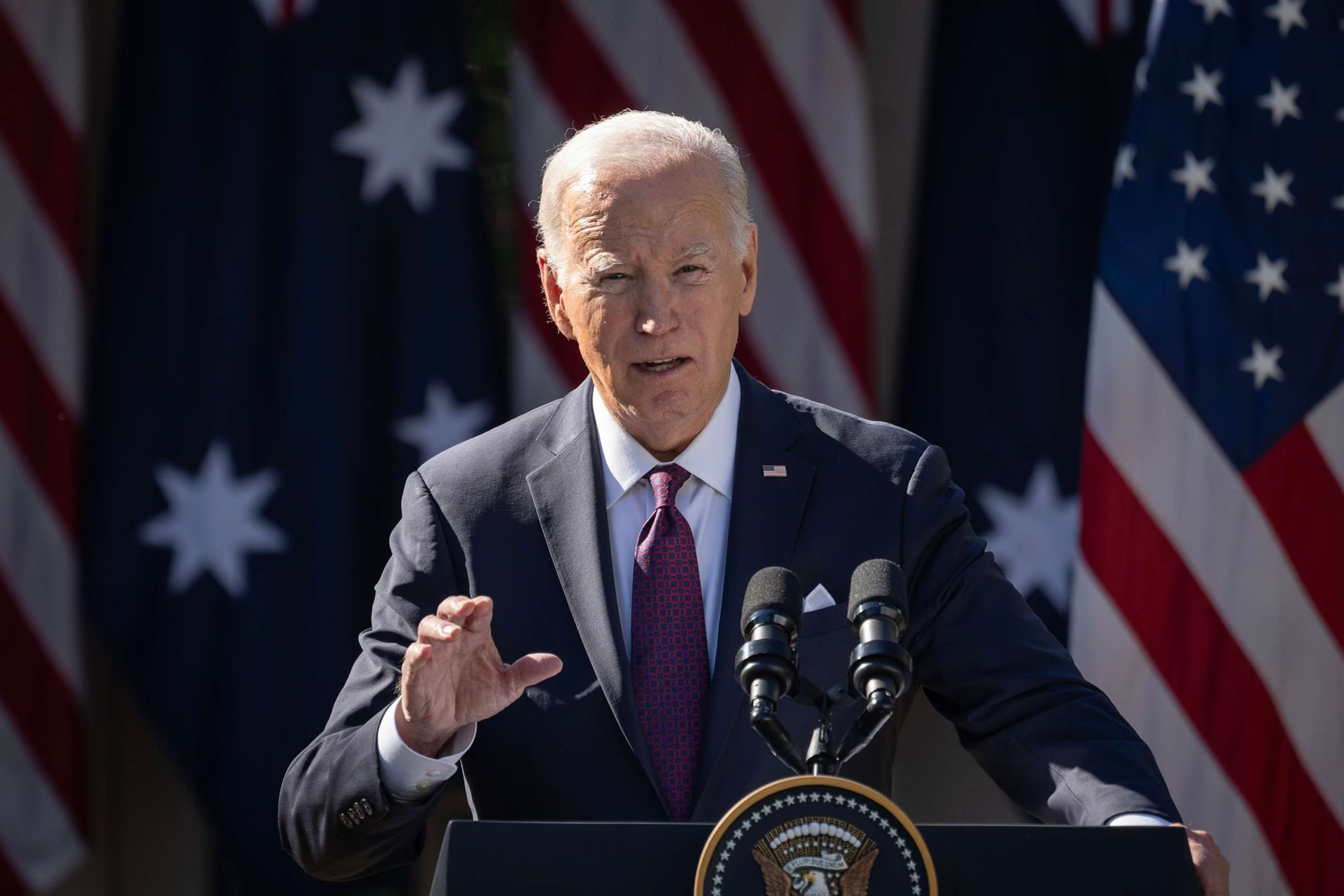US strikes back at Iranian-backed groups who attacked troops in Iraq, Syria: Pentagon
U.S. military aircraft have carried out strikes in eastern Syria against facilities associated with Iranian-backed militant groups believed to be responsible for more than a dozen rocket and drone attacks on American troops in Iraq and Syria that injured 21 service members, the military said Thursday night.
"Today, at President Biden's direction, U.S. military forces conducted self-defense strikes on two facilities in eastern Syria used by Iran's Islamic Revolutionary Guard Corps (IRGC) and affiliated groups," said Defense Secretary Lloyd Austin in a statement.
"These precision self-defense strikes are a response to a series of ongoing and mostly unsuccessful attacks against U.S. personnel in Iraq and Syria by Iranian-backed militia groups that began on October 17," he said.
"The President has no higher priority than the safety of U.S. personnel, and he directed today's action to make clear that the United States will not tolerate such attacks and will defend itself, its personnel, and its interests," he added.
The retaliatory operations were carried out at a time of heightened tensions in the Middle East amid the ongoing Israel-Hamas war, in the wake of Hamas' terror attack on Israel on Oct. 7, and U.S. concerns about preventing that conflict from enveloping the rest of the region.
"The United States does not seek conflict and has no intention nor desire to engage in further hostilities, but these Iranian-backed attacks against U.S. forces are unacceptable and must stop," Austin continued. "Iran wants to hide its hand and deny its role in these attacks against our forces. We will not let them. If attacks by Iran's proxies against U.S. forces continue, we will not hesitate to take further necessary measures to protect our people."
America has deployed two aircraft carriers as well as additional fighter squadrons and air defense systems to the Middle East to deter Iran or Hezbollah, the Iran-sponsored militant group that operates in southern Lebanon, from getting involved by launching a wider assault on Israel.
Senior U.S. officials have publicly blamed Iran for the more than 16 drone and rocket attacks on military bases in Iraq and Syria over the past week, which the U.S. believes have been carried out by Iranian-backed militant groups.
Twenty-one service members have been injured, according to the Pentagon's latest information. Officials said all of those troops returned to duty after experiencing minor injuries or traumatic brain injuries, but an American civilian contractor died from a cardiac arrest that occurred during one of the attacks.
MORE: US not ruling out retaliation against Iran-backed groups after attacks on soldiers
On Oct. 19, a U.S. Navy destroyer shot down four medium-range missiles and 15 drones that officials said were fired by Iranian-backed Houthi forces in Yemen that the Pentagon believed could have been headed toward Israel.
The American troops in Iraq and Syria are stationed on a handful of bases equipped with weapons systems to help prevent rocket and drone attacks that have been historically carried out by militants sponsored by Iran.
The U.S. has previously responded to these attacks with airstrikes targeting the proxy groups, most recently in March.

On Wednesday, President Joe Biden stressed that the U.S. reserves the right to retaliate.
"My warning to the ayatollah [is] that if they continue to move against those troops, we will respond, and he should be prepared," Biden told reporters, referring to Iran's supreme leader.
Pentagon officials have also reaffirmed that the U.S. was not ruling out the possibility of a military response.
"I think we've been crystal clear that we maintain the inherent right of defending our troops and we will take all necessary measures to protect our forces and our interests overseas as it relates to these groups," Pentagon spokesman Brig. Gen. Pat Ryder told reporters earlier on Thursday.
MORE: Additional attacks on American bases in Syria Friday after US retaliatory airstrikes
Ryder pinned the blame for the recent attacks in Iraq and Syria on fighters supported by Iran and held Iran responsible but he said he wasn't going to telegraph any potential U.S. military response -- "other than to say we would do so at a time and place of our choosing."
Amid the unfolding war between Israel and Hamas, the U.S. has surged military assets to the Middle East both in support of Israel's response to Hamas and as a deterrent to other countries, like Iran and their proxies, Defense Secretary Lloyd Austin said on Sunday on ABC's "This Week."
"We're concerned about potential escalation. In fact, what we're seeing is the prospect of a significant escalation of attacks on our troops and our people throughout the region," Austin told "This Week" co-anchor Jonathan Karl.
The U.S. has also sought to tamp down fears that the war could spiral out -- in the kind of escalation not seen in the Middle East in decades.
"The United States does not seek conflict with Iran. We do not want this war to widen," Secretary of State Antony Blinken said at a meeting of the U.N. Security Council on Tuesday. "But if Iran or its proxies attack U.S. personnel anywhere, make no mistake: We will defend our people, we will defend our security -- swiftly and decisively."
Disclaimer: The copyright of this article belongs to the original author. Reposting this article is solely for the purpose of information dissemination and does not constitute any investment advice. If there is any infringement, please contact us immediately. We will make corrections or deletions as necessary. Thank you.



